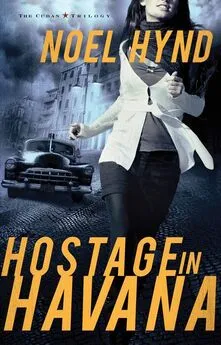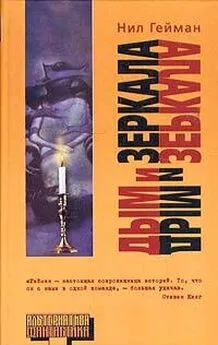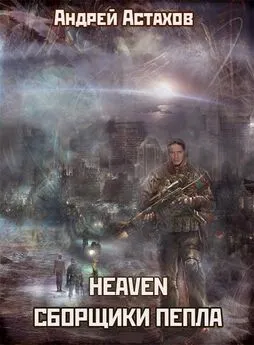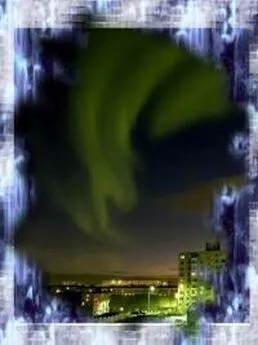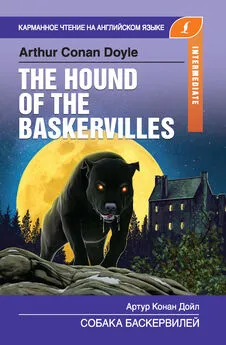Noel Hynd - Hostage in Havana
- Название:Hostage in Havana
- Автор:
- Жанр:
- Издательство:неизвестно
- Год:неизвестен
- ISBN:нет данных
- Рейтинг:
- Избранное:Добавить в избранное
-
Отзывы:
-
Ваша оценка:
Noel Hynd - Hostage in Havana краткое содержание
Hostage in Havana - читать онлайн бесплатно полную версию (весь текст целиком)
Интервал:
Закладка:
They flew above Central Park. Perez loved this city. He hoped to come back with his wife soon, take the kids to the big zoo up in the Bronx, maybe even to the new Yankee Stadium. His little girls loved beisbol, and his wife was fluent in English, just as he was. Nicoleta had worked in New York when she was in her twenties and still loved the place.
Maybe they’d even buy an apartment here a few years down the road. Still, he hated this current job. Hitting a target in the United States was definitely not something he would have wished to do.
To Perez’s right, in the distance, he could see the Statue of Liberty presiding over the harbor. The aircraft shifted into its final descent over Queens.
In another twenty minutes, he had picked up his single bag and proceeded to immigration, where he now stood quietly as the American immigration officer scanned his passport. The officer read the name on his Costa Rican passport. Orestes Pinero. The agent switched into Spanish. “Buenos dias.”
“Buenos dias.”
“Traveling here on business or pleasure?” the officer asked.
Since 9/11, these people asked irksome questions. Perez knew what to expect and had already memorized the details of a pharmaceutical buyers’ convention that was in progress at two of the midtown hotels. So he handled the nosey questions well. He had even booked a hotel to cover his stay and his ID.
The immigration officer waited for something on his computer screen. His brow furrowed. Perez remained calm. But was this whole thing going to blow up right at the start? He was entering the U.S. illegally on a freshly forged passport. Were the Americans one step ahead of him? To get pinched here at the airport over something minor would be catastrophic. His cover story would unfold eventually, fingerprints could lead to something in a database somewhere, and -
“?Hay problema?” he asked. The peon of an immigration officer was looking at the screen too long … much too long. It went through Perez’s head: someone somewhere squealed. He was walking into a trap. He turned and scanned the room. Security people all over. Nowhere to escape.
The immigration officer frowned. He was a nice-looking Latino in his thirties. Probably a Puerto Rican, Perez guessed. Clean cut, olive skinned. He looked a little like a cop. He refused to smile. His brown eyes slid from the computer screen to meet his. He then scrutinized the passport once again. “New?” the immigration officer asked in Spanish, looking back up.
“New what?” Perez asked.
“The passport?”
“Yes. Just issued. My first trip.”
“Uh-huh,” the customs man said. Then he smiled. “Enjoy your visit,” he said. The immigration man closed the passport and returned it.
Within ten minutes, Perez had found a taxi and was on his way into Manhattan, still unwinding, promising himself that never again would he do this. The risks were too high.
FIFTEEN
The next morning, Alex arrived at her eighth-floor office at 8:23 a.m. and walked through the metal detector into Fin Cen’s suite. “You might want to go into the chief’s office as soon as you can,” Stacey said when Alex approached. Stacey handed Alex the morning message slips. Then she mouthed the initials FBI.
“What?” Alex asked.
Stacey shrugged and repeated.
Alex gave her a nod. “Okay. You haven’t seen me yet,” she said.
Alex stopped in her own office long enough to put down her attache case. FBI was always a mixed blessing. Couldn’t work with them, couldn’t work without them. Alex did a quick scan of her emails. There was one from Christophe Chatton at Credit Suisse; Federov’s check had cleared. The two million dollars was available and bearing interest at a rate of eight hundred fifty dollars a week. It was an excellent example of the wealthy getting wealthier, though Alex would never have called herself that. Wealth, to her, wasn’t measured in dollars.
She riffled through the message slips. No biggies. Back to the present: FBI – Frat Boys Investigating. What was this about? Typical that they would turn up unannounced and crash into everyone else’s schedule. She strode from her own office to De Salvo’s corner suite. The chief’s secretary, Elsa, sat guard outside as usual. Elsa already had Alex in her gaze by the time Alex’s eyes found hers.
“Go on in,” Elsa said. “Looks like a war party.”
“Great,” Alex muttered.
Alex opened the door and stepped in. She could tell right away – it was trouble. De Salvo sat at the center of his wide mahogany desk, but to his right, on various chairs, sat two men she didn’t recognize and one woman, Leslie Erin, whom she did. De Salvo stood up and the other two men shot to their feet twice as fast.
“Hello, Alex,” Leslie said, standing also. “Sorry about this, but everyone agrees there’s urgency here.”
“Okay,” Alex said. “No one looks too happy. What’s going on?”
Alex took the only vacant chair. Leslie did the introductions. Special Agent Jorge Ramirez, very tall, maybe six-four, Alex processed quickly, very dark in a sharp suit. He greeted her with a solid handshake. He was fit and between thirty and thirty-five, Alex reckoned. He looked as if he could pick up a desk and throw it across the room, complete with whoever was sitting at it. The second Fed was Special Agent Walter MacPhail. He wore a boxy khaki suit. He had thick graying hair, an uneven single brow above dark eyes, and a proprietary air that suggested that he was the lead on this case even though he was six inches shorter than his associate. He made up for the extra six on the waistline, however.
“Alex,” De Salvo said, “these gentlemen are homicide investigators who operate within an anti-terror unit of the FBI. They’re based in Florida and focus on issues involving the security of U.S. citizens.”
“Well, that means you must be busy,” Alex said. “I’m honored.”
“Your chief speaks glowingly of you,” Special Agent MacPhail said. “We’re honored as well.”
“Alex,” De Salvo said from his desk, “we’ve been chatting. Our associates here know what Fin Cen is about and what we do. Quick learners,” he said with a smile. “I was just starting to explain that Parajo is an operation that targeted Panama and the surrounding area, which was an obvious choice, and that you were put in charge earlier this year.”
Looking at De Salvo, MacPhail responded, “‘Obvious choice’ – why?”
Alex took over. “First, Panama’s a major ‘transit’ country for contraband. Narcotics and money are the two most insidious, with weapons not far behind.”
Both Feds, as if on cue, flipped open netbooks and began typing. De Salvo leaned back.
“For example,” Alex said, “last year Panama interdicted more than sixty tons of cocaine. That’s the highest number in Central America. Keep in mind, given the geographical nature of the Panama’s Caribbean coast and its remoteness, most of the cocaine trafficked from Colombia to Central America and Mexico passes along this route. Take the city of Turbo in Colombia. Turbo is a banana export center located on Colombia’s Caribbean coast. The banana boats, however, run interference for the cigarette boats that head straight for isolated destinations along Panama’s Caribbean coastline where they deliver their cargo. The Atlantic coast, from Colon to Costa Rica, is the most active. Physical geography is a great facilitator. Remoteness makes these routes attractive to smugglers. The stretch of land that connects Panama with Colombia is a dense jungle and a haven for narco contrabandistas.”
MacPhail, the older agent, exhaled a low whistle, looked up, and shook his head. “The Darien Gap, right?” he asked.
“Correct.”
“You know your stuff,” Ramirez said to Alex.
“I wouldn’t be in this job if I didn’t,” she answered.
“I had an operation that took me to the Darien Gap six years ago,” MacPhail said. “We were chasing down some stolen aircraft and crossed swords with some bad guys from Cali in Colombia. The Darien Gap is a hell hole. We lost two agents.”
MacPhail looked back at Alex. “George, that’s Jorge, and I both speak Spanish and have spent time in Central America. We’re familiar with what goes on in Panama. The area presents dozens of options for front businesses and money-laundering operations. Those are your targets?”
“Correct,” Alex answered. “Here’s an overview: Panama gives Colombian drug traffickers a culture they can blend into.
Colombian-owned businesses also make up the majority of Panama’s most successful companies, most, if not all, located in Panama City. Many Colombians own vacation land or plantations in Panama and make up part of the billions of dollars Colombians invest in Panama. A lot of the money is legitimate, but a hefty percentage isn’t. Look. If U.S.-bound cocaine starts in Colombia, the key transit link is Panama. You know this as well as I do. While we can make regular interdictions, we’re hard-pressed to combat the sheer number of options Panama City and the rest of the country offer to criminals. So we go after the big shots.”
“The Dosi family,” MacPhail said.
“Correct.”
“They’ve been arrested?” Ramirez asked.
“They’re in hiding. Possibly in South America somewhere as of this morning, looking for a sanctuary state to escape to. That’s between us, of course.”
Leslie spoke up from a visitor’s chair. “Here’s the issue, Alex. The Dosi family’s planning a counterattack.”
“A counterattack?”
“They’ve hired someone to kill you,” Ramirez said.
Alex tried to wrap her mind around this. Then she sighed. “Threats are nothing unusual in cases like this,” she answered. “People talk, they get angry, they threaten. Carrying through is something else,” she said. “I have a scar and a pain in the left shoulder that reminds me every day that I’ve been shot at before. There’s always blowback from these Central American hoods when there’s a successful operation against them. And macho oversexed thugs that they are, they probably like it even less when a woman is leading the charge against them.”
MacPhail produced a manila envelope. From it slid a photograph.
“Take a look,” said Ramirez. “This is Manuel Perez. Ever seen the face?”
Alex looked at the picture. “No. Haven’t seen him, don’t know anything about him, and have never heard or read the name before.”
“Consider this,” MacPhail said. “Four months ago, the Mexican judicial minister, Nelson Sanchez, who was involved in financial fraud and money laundering, was at his beach-side villa on Mexico’s Pacific coast, just south of Zihuatanejo. The whole place was cordoned off by army and local police. There were two navy speed boats in the bay in front of him, protecting him while he was there. He was sitting on the beach with his mistress when two fifty-caliber bullets came at him. One of them hit him in the forehead, the other in the chest. The final report said the shot came from a boat half a mile out at sea. The sniper had fired long range and escaped.”
Ramirez picked up the narrative.
“Now put that in the back of your mind, Alex, and consider a more recent case when a similar sniper fired on a motorcade driving Ramon Inezia, the chief of Colombia’s national anti-narcotics squad, to the airport. Inezia’s car was armor plated and thought to be bulletproof. But the sniper had a new bullet that was ahead of the glass technology used by Mercedes Benz. Three bullets hit the car. One got Inezia in the neck. The other got him in the head. The third hit the vehicle’s fuel line and killed the driver when the vehicle exploded. Quite an efficient bit of shooting from about four hundred meters at a fast-moving car. There’s television footage available. Sort of Zapruder-style. You can see the Mercedes speeding along, first with an impact point and then the whole back window blows apart, as does the late Sr. Inezia’s head a nanosecond later. We can arrange a viewing if you like.”
Читать дальшеИнтервал:
Закладка:
